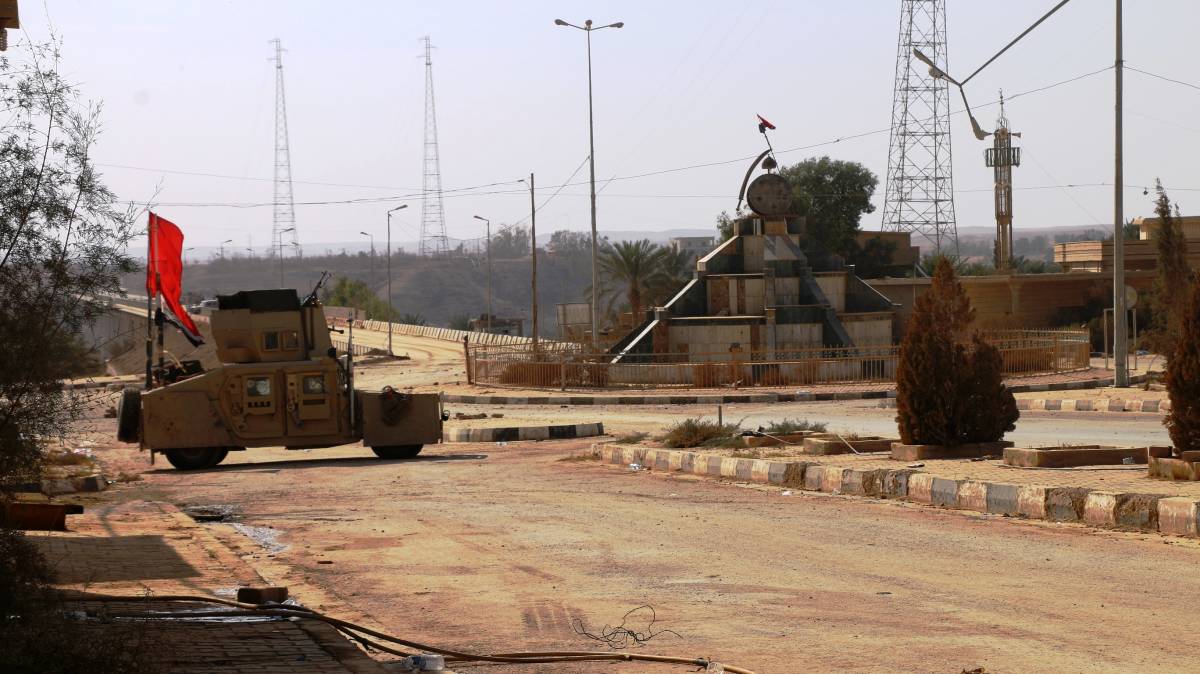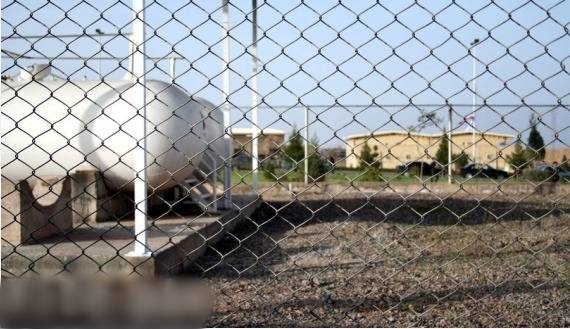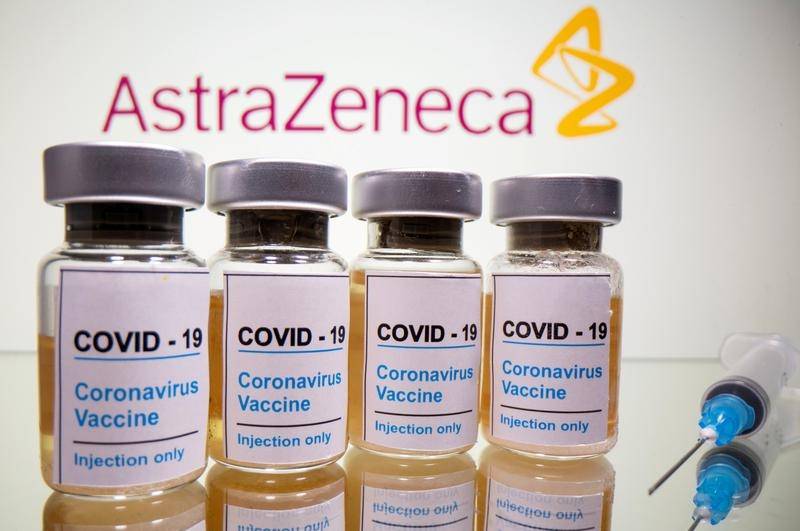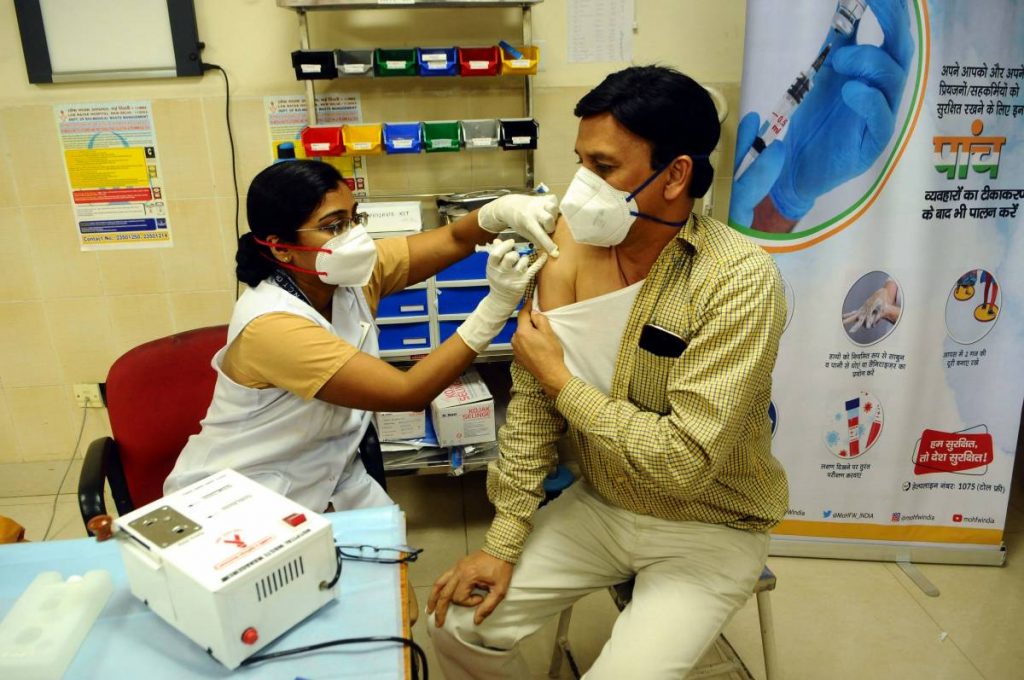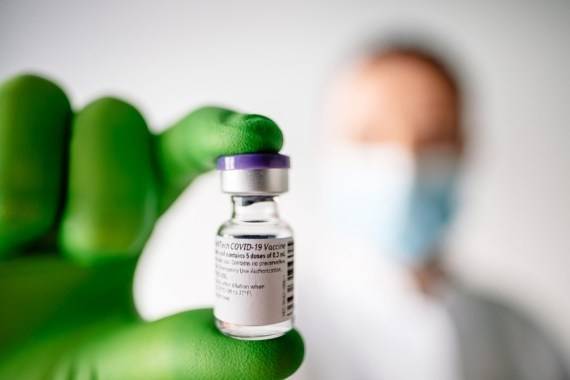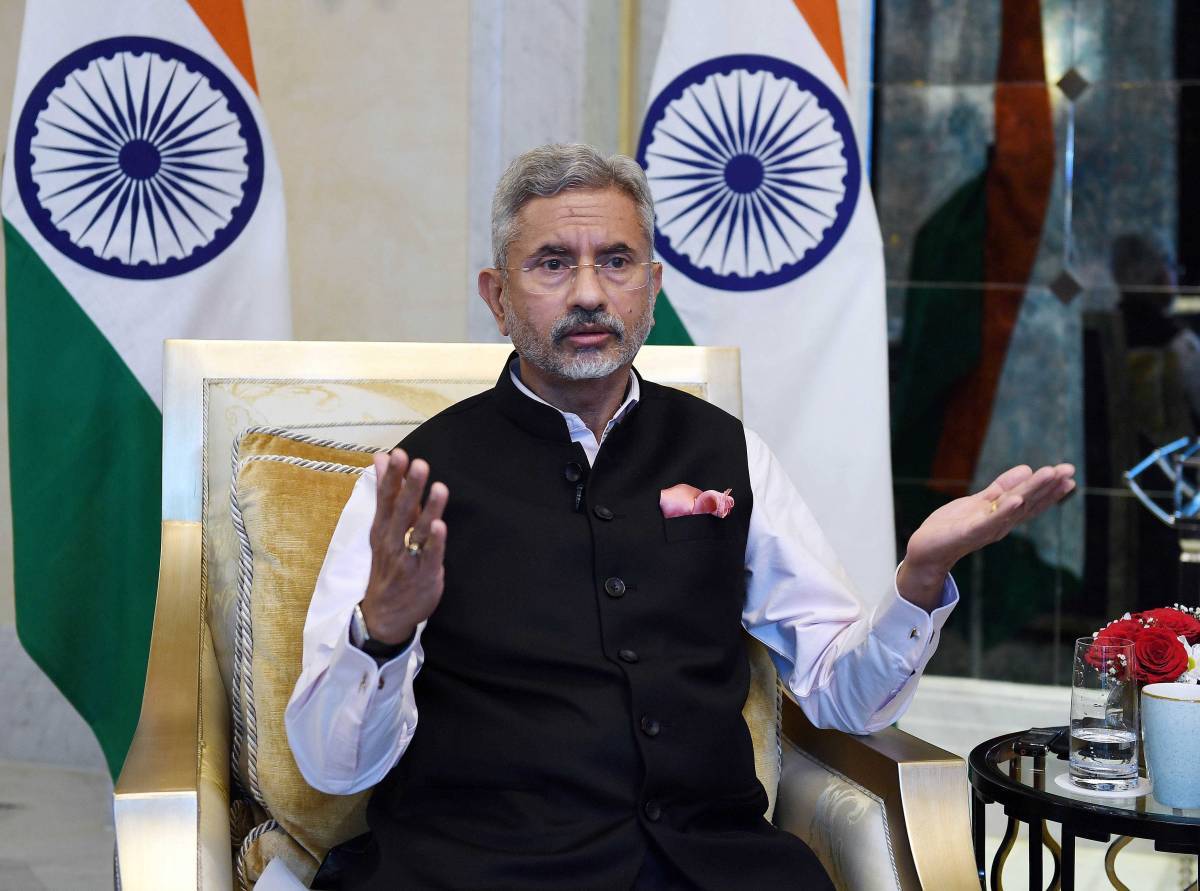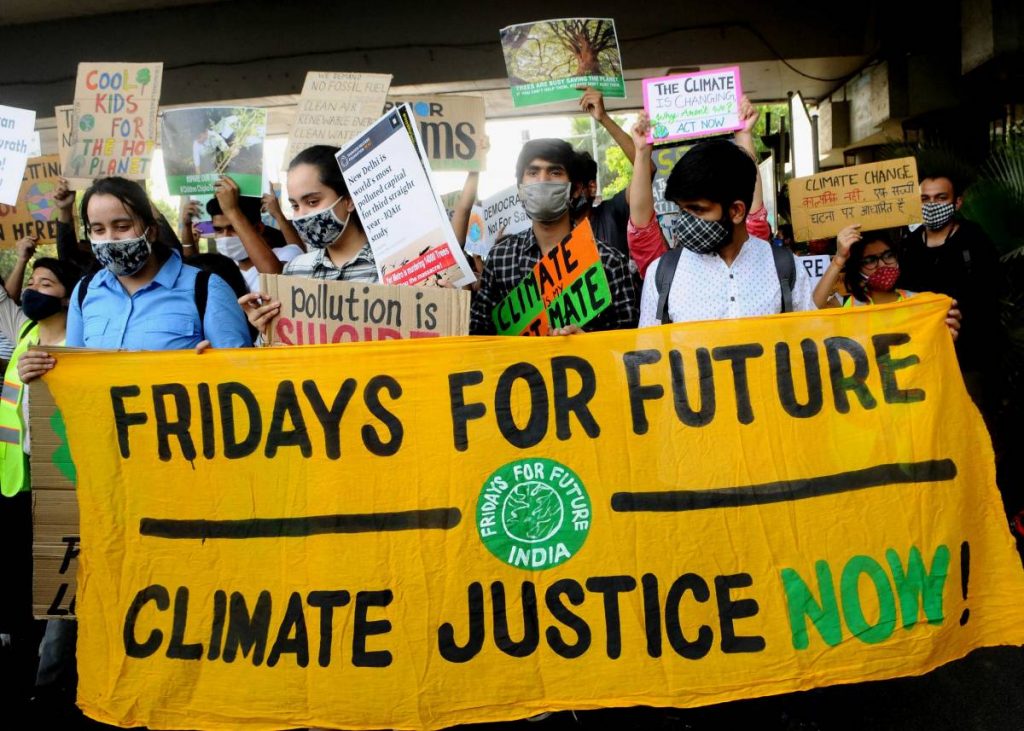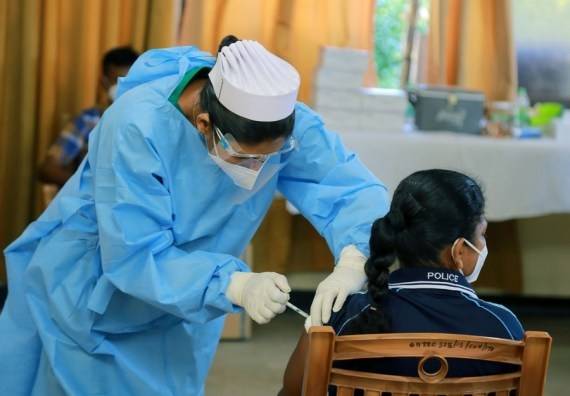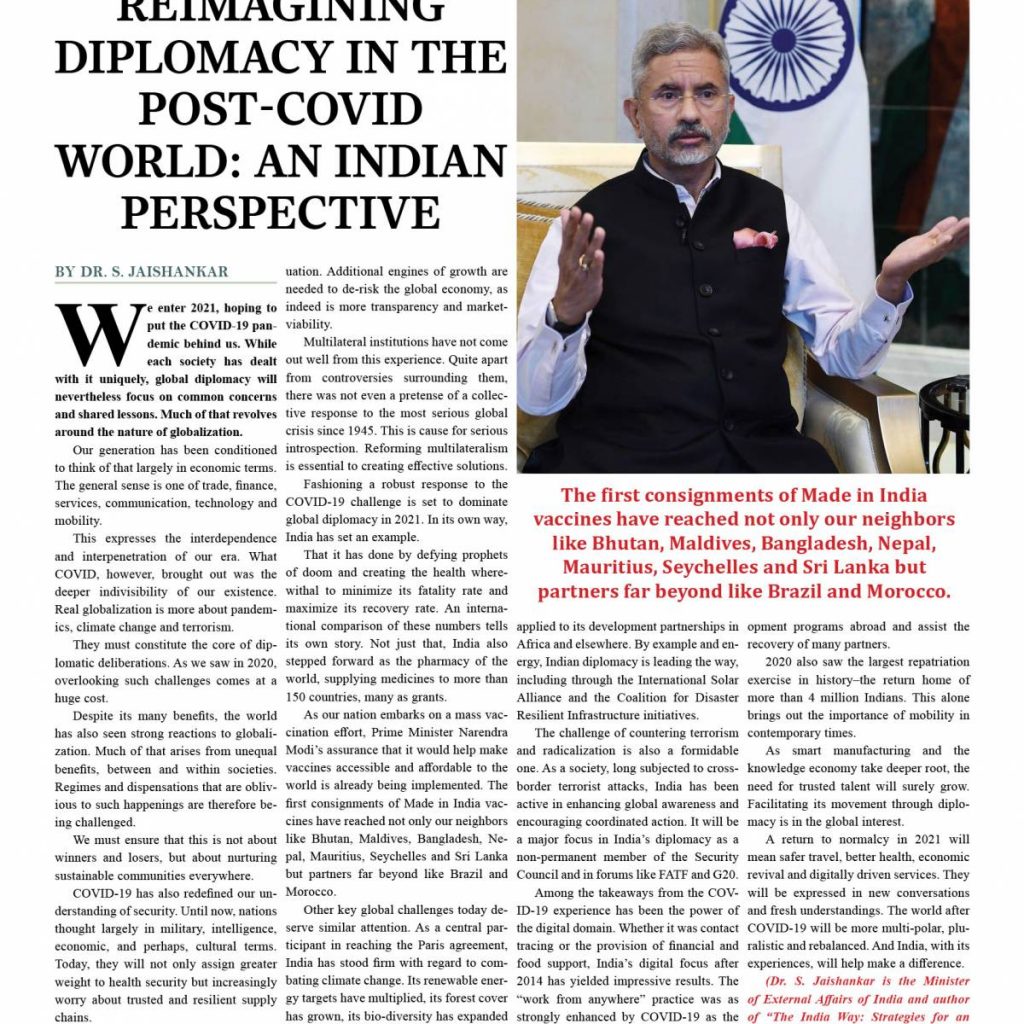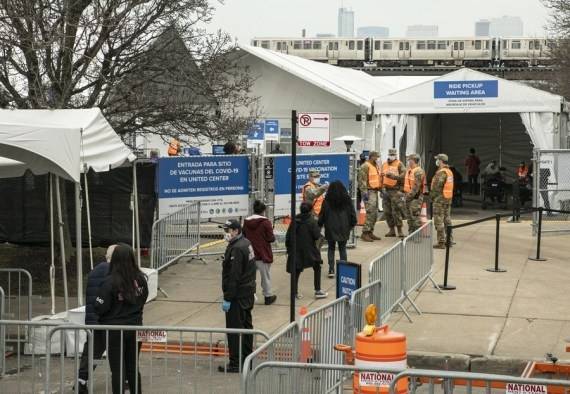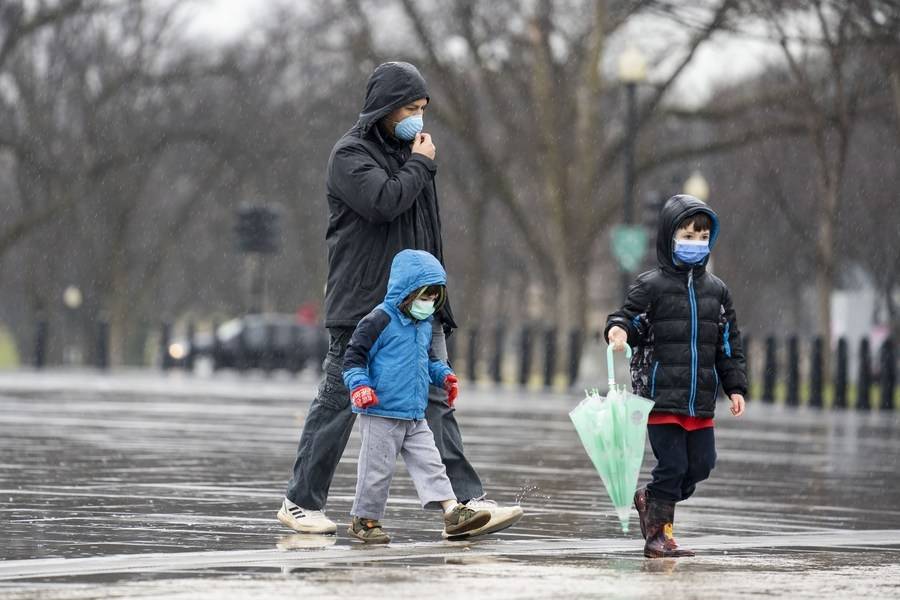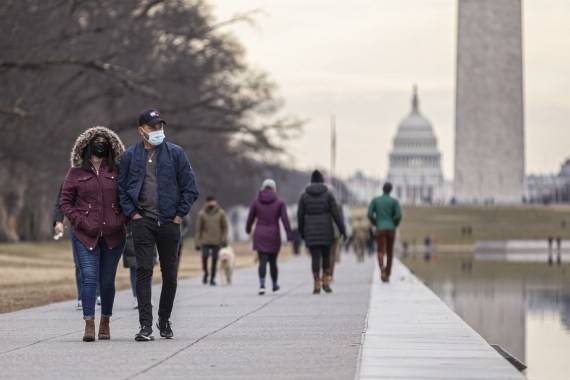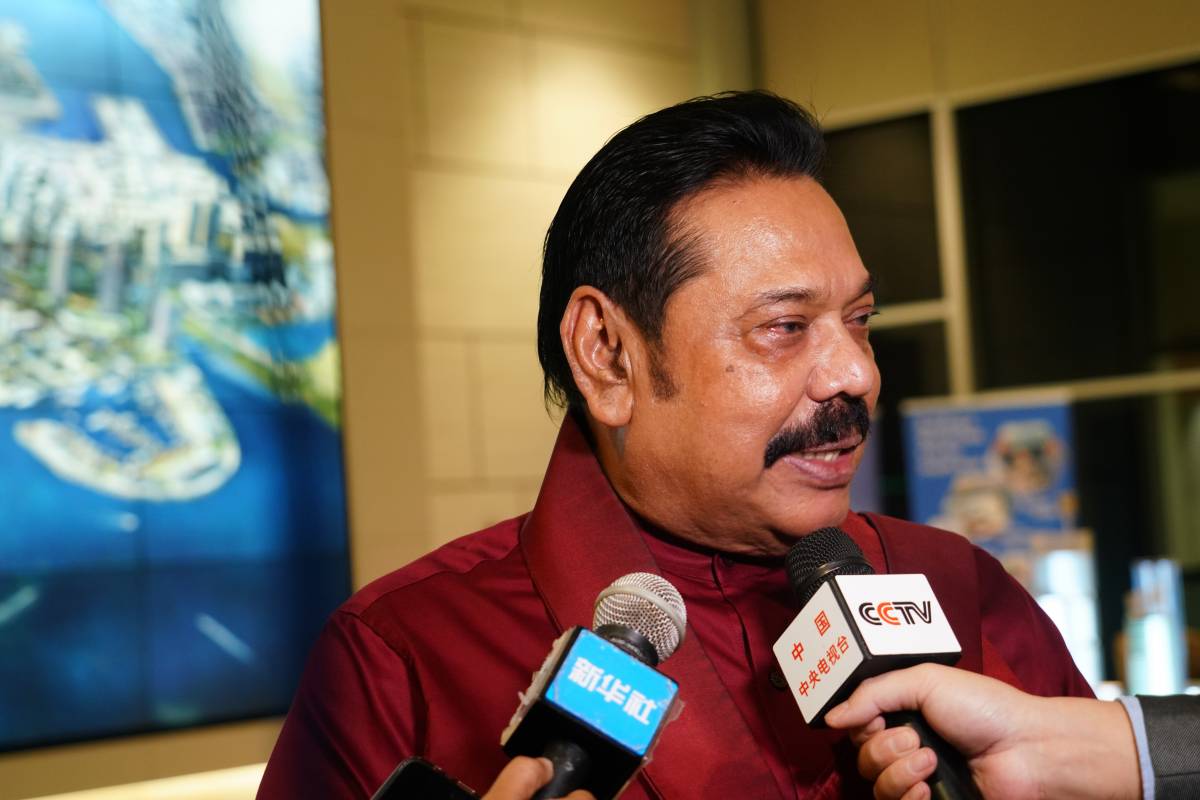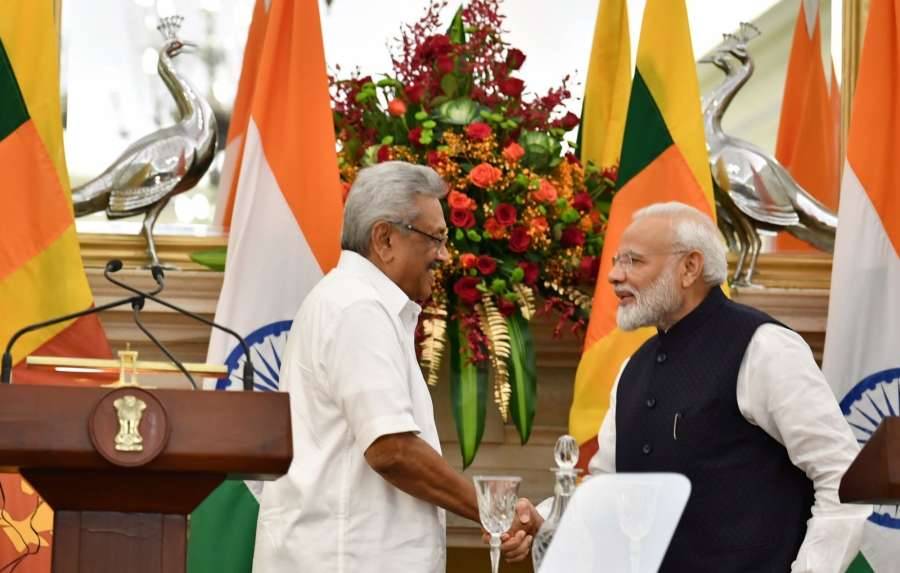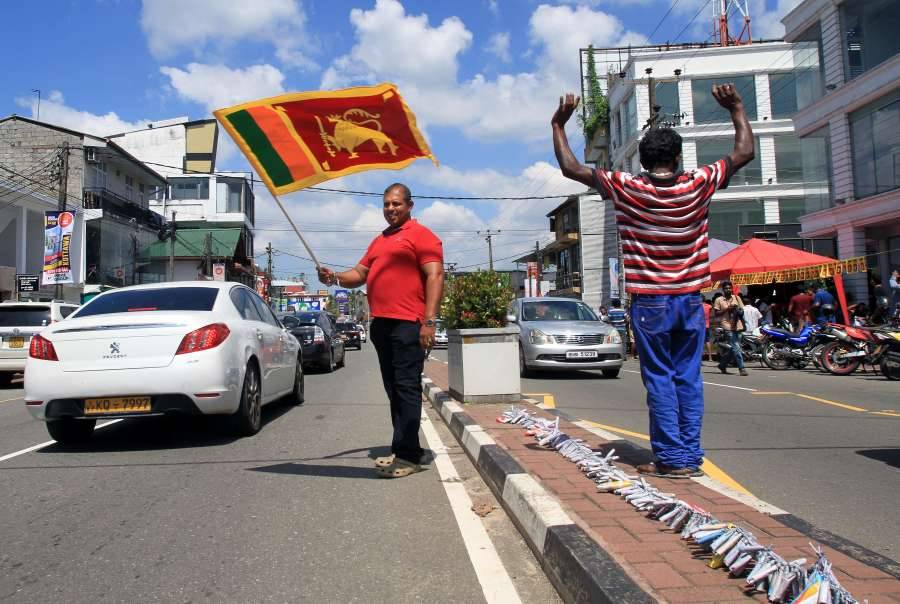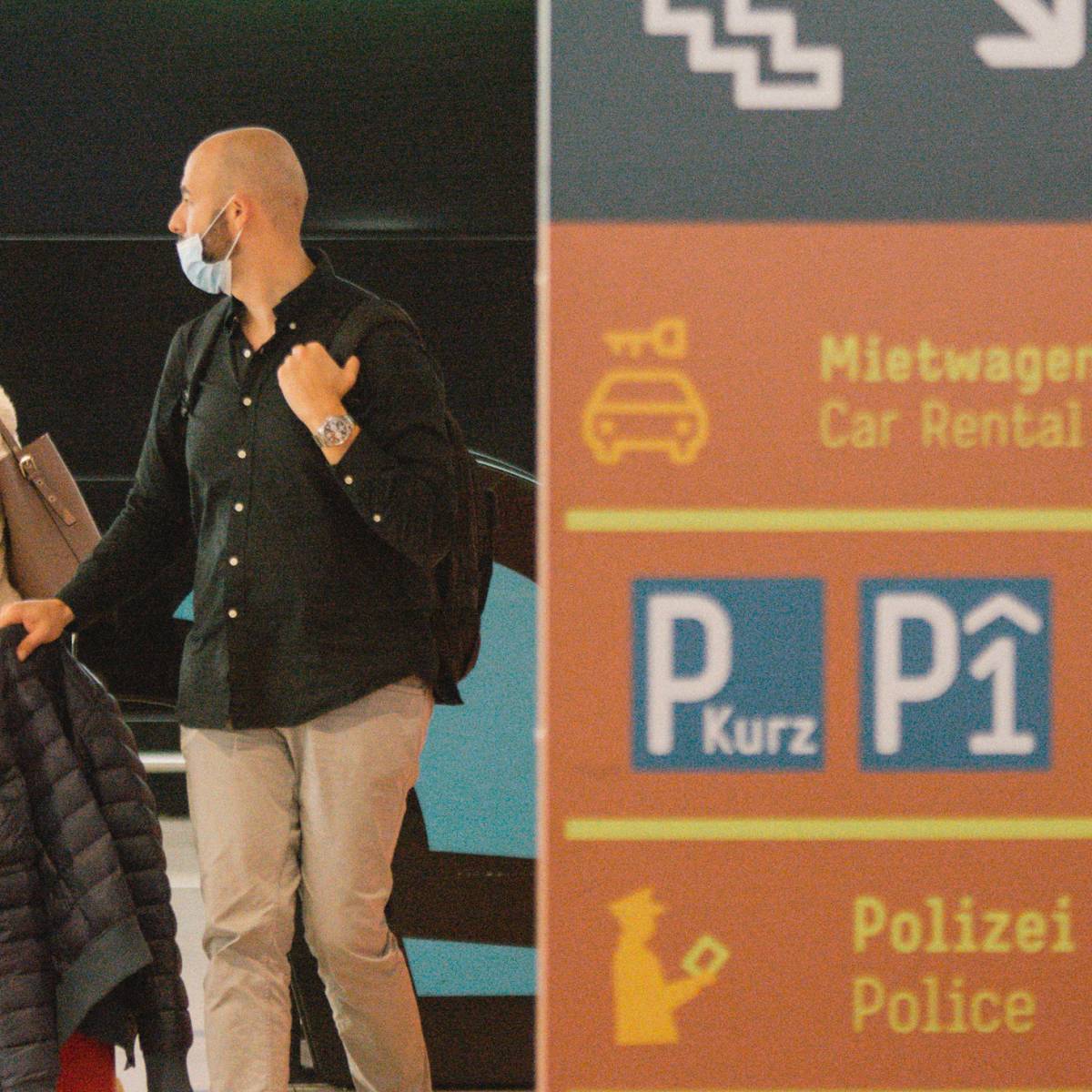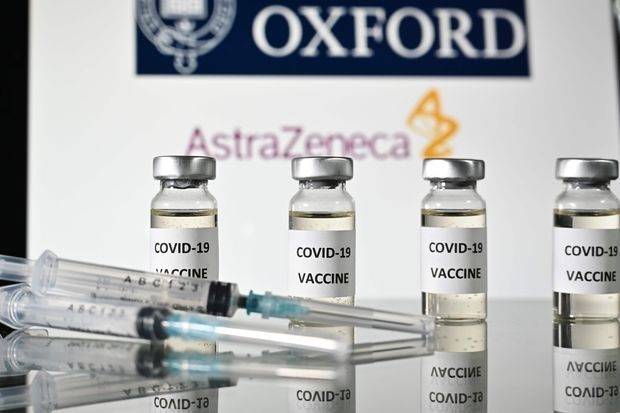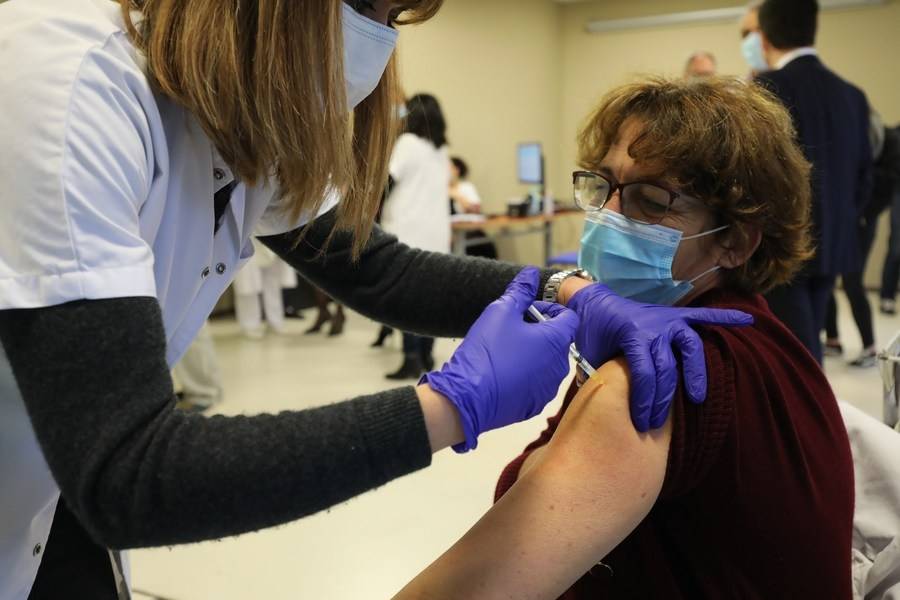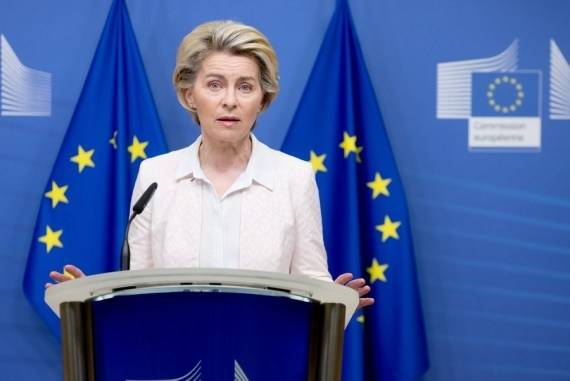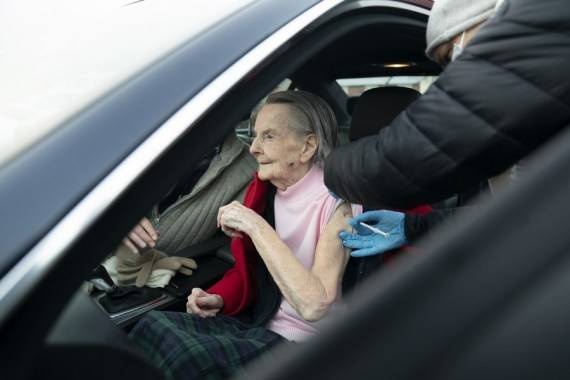Sheikh Hasina hailed Narendra Modi’s neighbourhood policy, saying that Bangladesh receiving 2 million Covid vaccine doses from India establishes this principle, reports Sumi Khan
Bangladesh Prime Minister Sheikh Hasina on Friday expressed her gratitude to her Indian counterpart Narendra Modi, saying the government of India always stands by Bangladesh through thick and thin.
Indian Prime Minister Narendra Modi arrived in Dhaka on Friday on a two-day visit to Bangladesh to attend the celebrations of the country’s 50th year of liberation from Pakistan and the 100th birth anniversary of its founder Sheikh Mujibur Rahman, the father of Sheikh Hasina.
“I’d like to express my heartfelt gratitude to Modi Ji and the people of India,” Hasina said.
Also Read – Modi begins Bangladesh tour with goodwill message
On the last day of the 10-day celebrations to mark the country’s 50th year of liberation from Pakistan, Modi and Hasina enjoyed the music of legendary classical vocalist Pandit Ajoy Chakravarty at the National Parade Square in Dhaka, along with the President of Bangladesh, Abdul Hamid, and others.
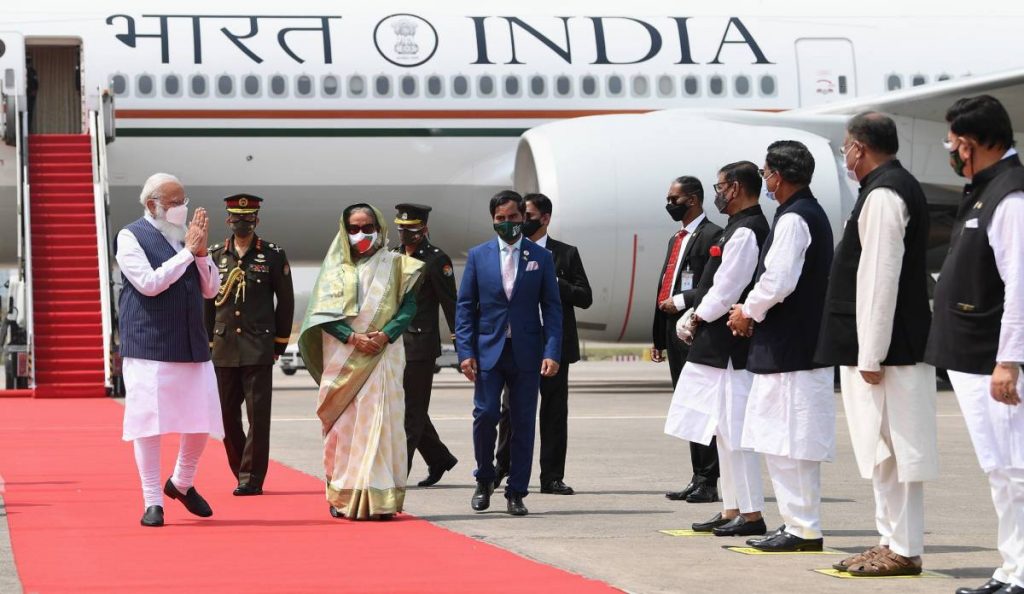
Hasina said, “The Prime Minister of India made us glorified with his priceless presence in this pandemic period. The people of Bangladesh are grateful to Modi Ji and the people of India, who served the most for the people of Bangladesh in 1971.”
Hasina added that India must play a leading role in building a politically and economically prosperous South Asia. “We can make this region a hunger-free, poverty-free zone. We will achieve the goal set by the UN by 2031,” she said.
Also Read – B’desh sees violent anti-Modi protests
“I am grateful to India for nominating Bangabandhu Sheikh Mujibur Rahman for the prestigious Gandhi Peace Prize in 2019. India is our friendly neighbour, and the two countries share a long standing relationship. The government of India had provided all kinds of assistance to the people of Bangladesh who took refuge there to save their lives from the atrocity, rape and arson of the Pakistani army in 1971. The Indian government and its people gave shelter, served food and assured medical help to around 1 million helpless people from Bangladesh,” she said.
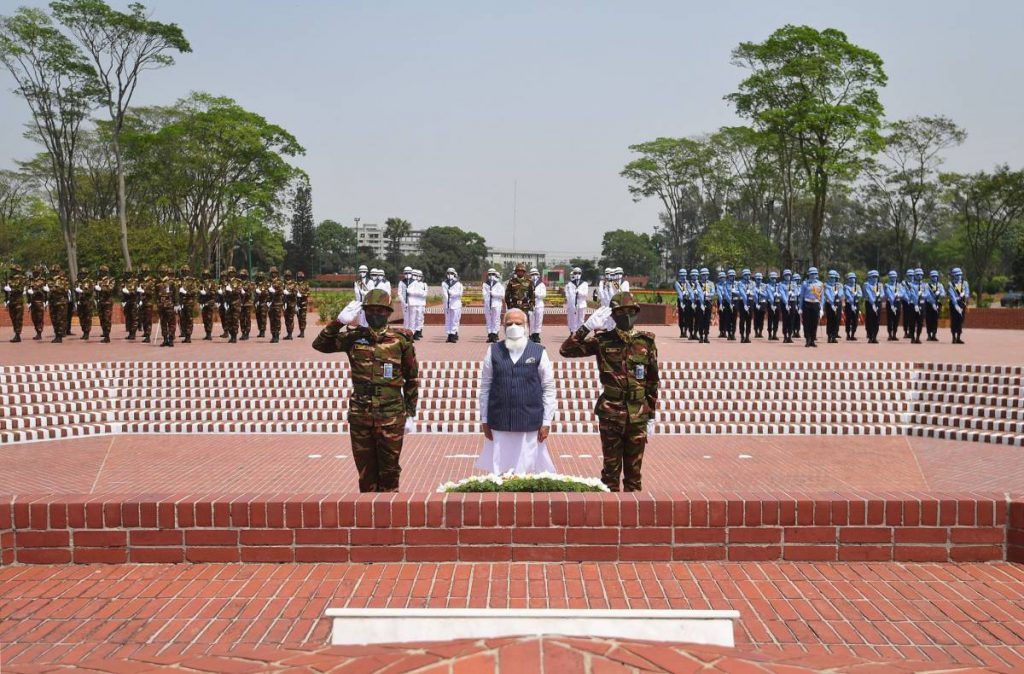
“In 1971, many army officers from India shed their blood for the independence of Bangladesh. I respectfully remember their contributions. India’s cooperation will never be forgotten. I’m personally grateful to the people and government of India. After all my family members were killed during the war, I was at my husband’s workplace in Germany with my sister and children. I had lost everyone. There was no arrangement to stay in that country. At that time, then Prime Minister of India Indira Gandhi and Yugoslav leader Marshal Tito gave us shelter,” Hasina said.
Read More – Bangladesh thanks India for providing vaccines
The Bangladesh premier also appreciated the policies of Modi, and his slogan “Neighbours first and foremost”, saying that Bangladesh receiving 2 million Covid vaccine doses from India establishes this principle.
With the inauguration of the Maitri Bridge, India will now be able to use the Chittagong Port and Mongla Port, Hasina assured to Modi.
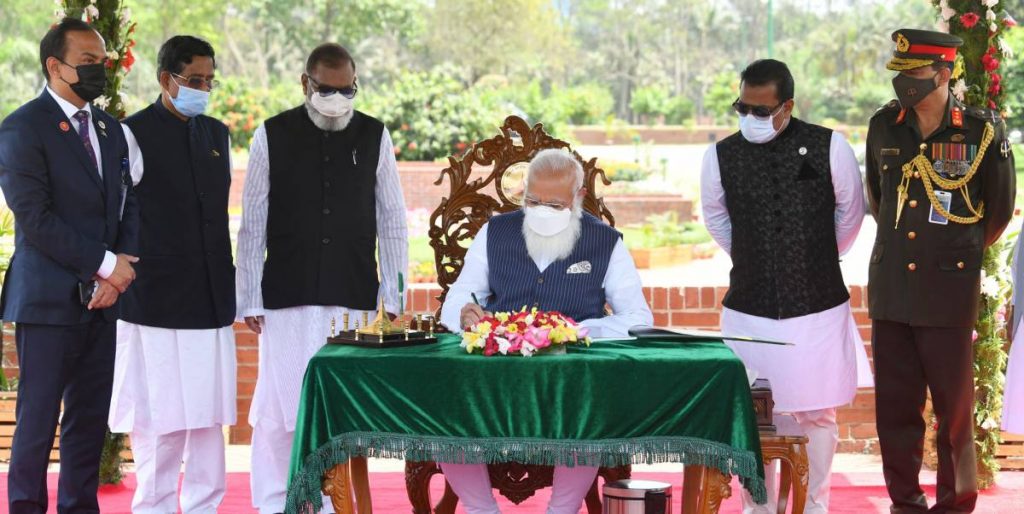
“May Bangladesh-India friendship be long-lasting for all kinds of cooperation,” she said.
Bangladesh President Abdul Hamid said, “During my stay in India for nine months during the liberation war in 1971, I myself witnessed how the government of India and its people gave shelter to 10 million people and refugees from Bangladesh. I hope all the unresolved issues will be settled soon. Bangladesh is always grateful to India.”
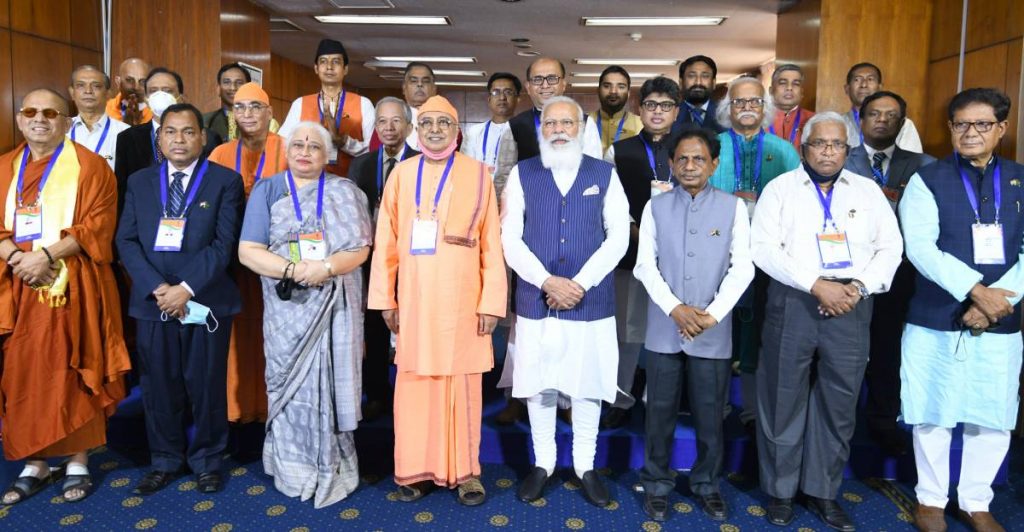
The Prime Minister, Shri Narendra Modi in a group photograph with the members of the Minority Community in Bangladesh, in Dhaka, Bangladesh on March 26, 2021. 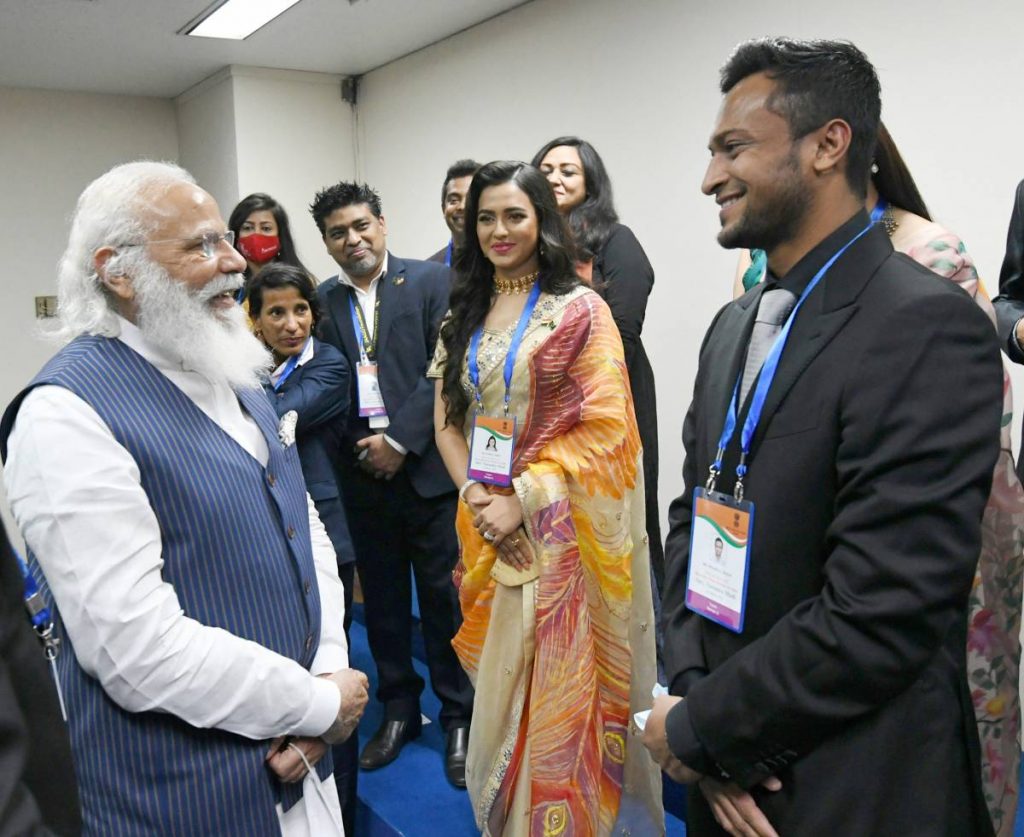
The Prime Minister, Shri Narendra Modi meeting the eminent young achievers from different walks of life, in Dhaka, Bangladesh on March 26, 2021. 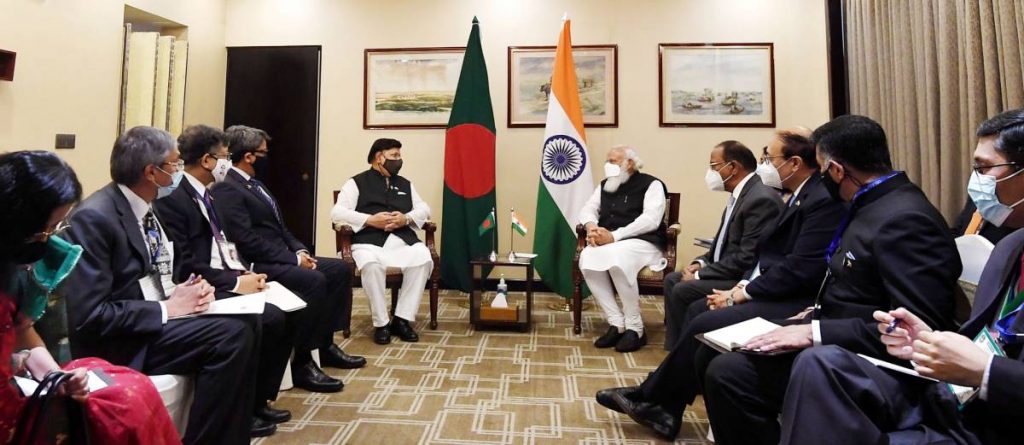
The foreign Minister of Bangladesh, Dr. A.K. Abdul Momen calling on the Prime Minister, Shri Narendra Modi, in Dhaka, Bangladesh on March 26, 2021. 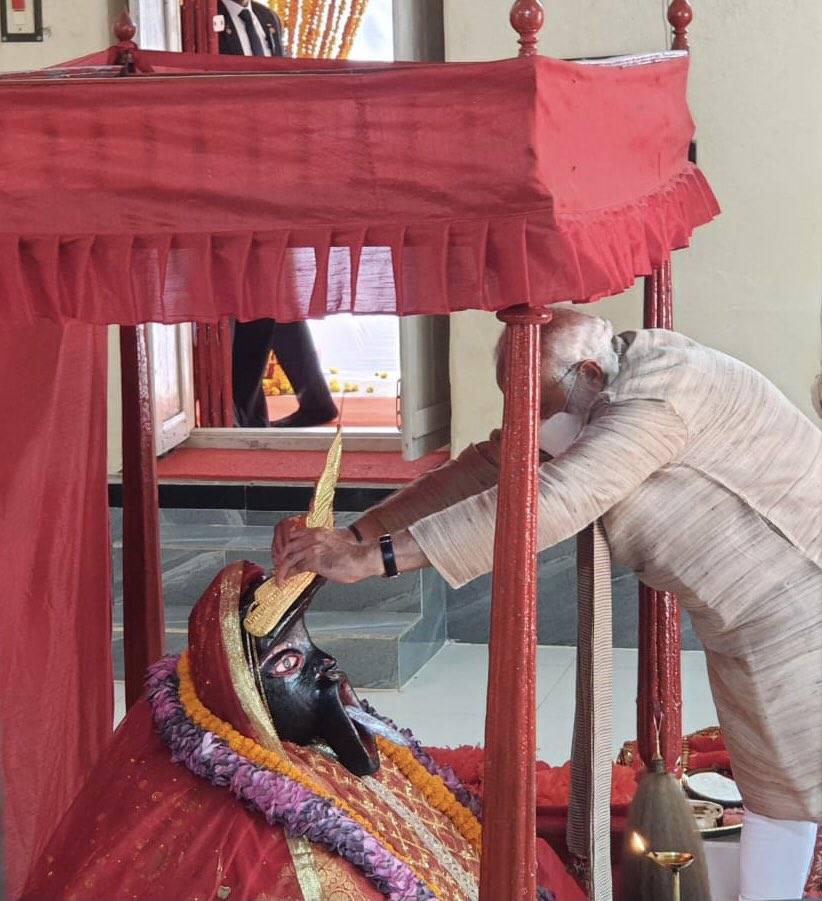
Prime Minister Narendra Modi places hand made Mukut on Ma Kali. Mukut made of silver with gold plating. Hand made over three weeks by a traditional artisan.


